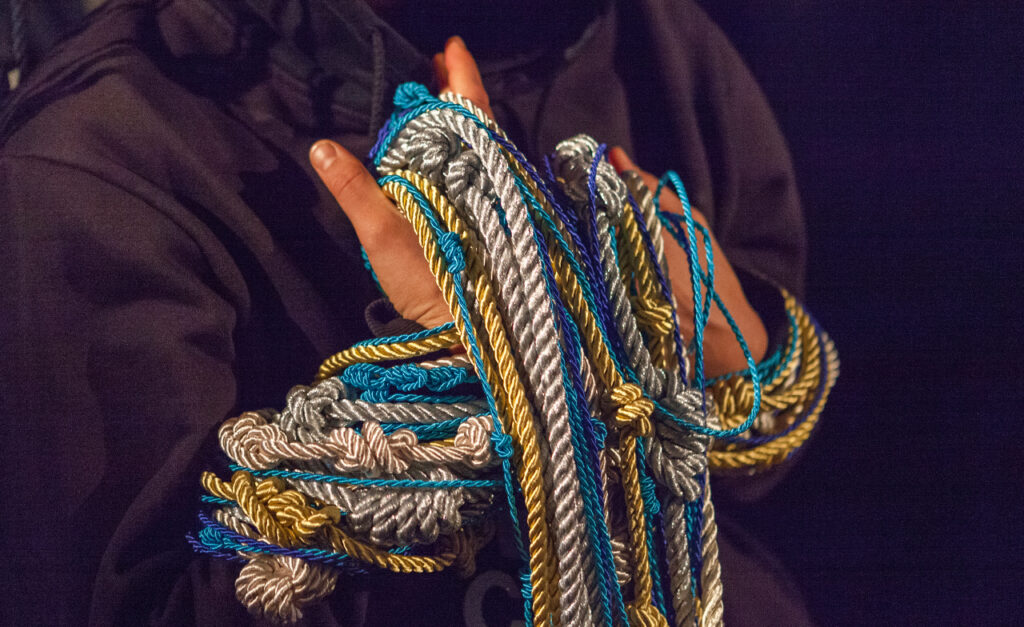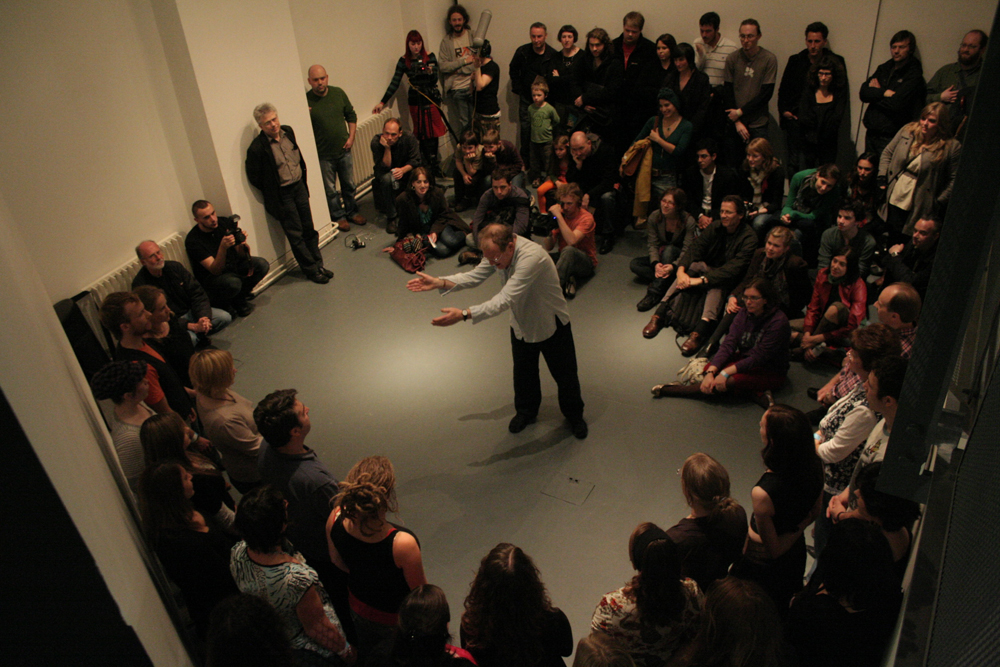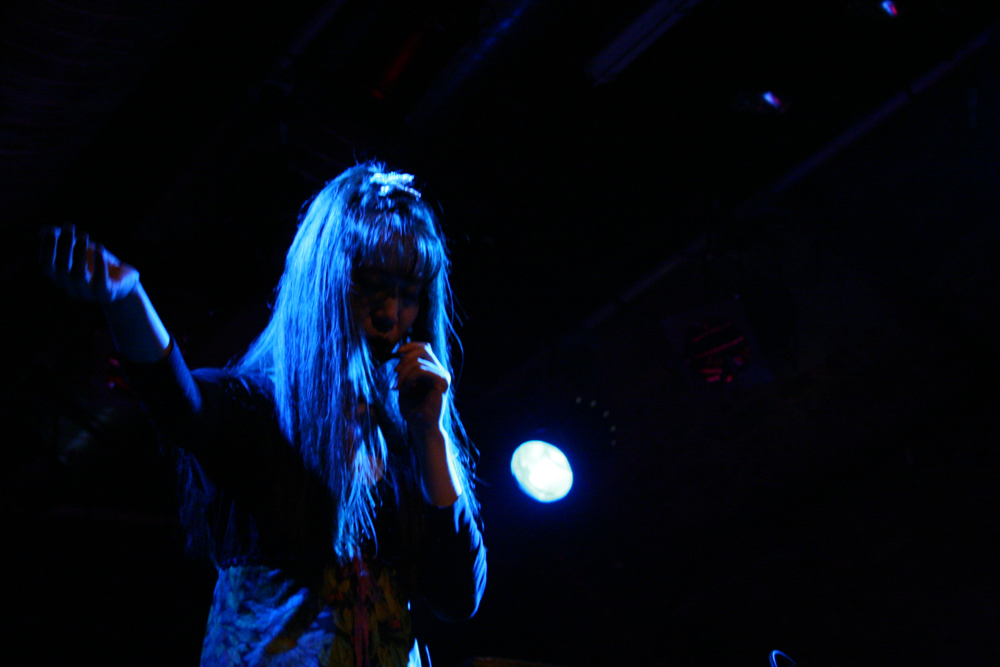
Gravitational Feel: Opening Performance
Fred Moten Wu Tsang
Gravitational Feel is an engine for intensifying the differentiation of our entanglement, which you continually reprogramme in the mutual rub, shift and lap of its sonic, wooden, steel, textile and human material.












